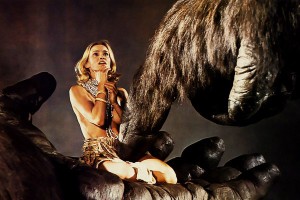I was a teenager in the 1980’s, and as impossible as it might now sound, I did not think Meryl Streep was particularly attractive.
How could that be?
Look at her.
She’s stunning.
I, of course, had the blunt interests of a boy who knew nothing about women or sex– although I was very interested in both– and I simply accepted Hollywood’s casual objectification of these mysteries. I didn’t know somebody was attractive unless Hollywood signalled to me that they were, something they usually did by a display of nudity. And so the promise of Jessica Lange, Kim Basinger or Jamie Lee Curtis taking off their top in some accessible, high velocity movie was simply too much for me to resist.
Streep, who even at a young age seemed to be playing adults rather than sex toys for naive adolescents, was cast in the sort of films that my parents might be interested in, in “prestige” films, and even though she was of the same general age as all the other celebrities I lusted after, she was stood apart from them, a European cousin, or something.
As an adult I came to love Meryl Streep. Not so much for her acting, which was always somehow obscured for me by her reputation for “acting,” but for her presence. Talented, charismatic and beautiful, she’s also fantastically articulate and charming, and like everybody else I was super keen to hear her speak at the Golden Globes.
Her speech was widely celebrated.
Meryl Streep, Hollywood’s single-combat hero, called to our better angels, and as we sat there listening it was as if the Stature of Liberty herself was speaking. Expecting to love every word of it, I was surprised to discover that I did not.
Although she might have been joking when she referred to the roomful of beautiful, insanely wealthy and adored people sitting before her as, “The most vilified segment of American society,” it made me roll my eyes . Whether she intended it with any irony or not is unclear, but the thrust of her argument was that Hollywood, full of outsiders and foreigners, was representative of some sort of scrappy refugee success story rather than a consumerist ideal of near-unattainable privilege. She continued, saying that if Trump had his way, all America would have left would be football and mixed martial arts– and as she said this, her voice rising in certainty, finger wagging, she admonished, “Which are not the arts!”
The home crowd cheered.
I don’t know.
I had thought I was the home crowd, too, but was I supposed to believe that actors were rescuing America from the things that the people who lived there liked? That football and MMA were unworthy to watch unless they were recreated in movie format starring celebrities?
Something like that?
I wasn’t sure.
Her audience was rapt, hanging on every word. And they were all so beautiful and dewy, so earnest and self-congratulatory in expression, so not of this earth that I imagined them separating from the rest of the world and rising up, up, up in some magical balloon that they knew the rest of us, so smitten, would never be able to let go of.
Her condemnation of Trump’s nascent war on journalism struck me as wanting, too, because there is likely no industry that succeeds so brilliantly at manipulating the press as does Hollywood. The Hollywood Foreign Press, who are responsible for the Golden Globes, are little more than a marketing wing for the industry, trading off favourable stories for glamorous access.
When we see our celebrities on the red carpet refusing to be objectified by not revealing who made their outfit and thus striking a blow for equal rights, we have to keep in mind that they’re still accepting money to advertise that dress.
Hollywood is about money.
Period.
If art or diversity or empathy is a byproduct of this pursuit, all the better, but if Meryl Streep were being honest with herself and the rest of us, she might acknowledge that she, like Trump, depends on a compliant media to promote her work and spin her narratives.
And so it goes.
Everything touches everything else.
It’s not like Streep was saying anything crazy, though. She was trying to do good, but her blind spots were, well, Hollywood in scope. Her words were tangled in contradictions, a stinging disregard for those who might not agree with her, and an imperious detachment from the pedestrian, discount store lives the rest of us struggle to lead, and that actually demoralized me.
Politicians and actors, I have found out, have all too much in common.







Comments
One response to “Golden Globes”
Thanks, and I agree. While I did appreciate her attempt, she and hers have cushioned soap boxes while most have the cardboard (discount store) versions.